Organizations that increase their communication and execution will thrive in spite of COVID-19.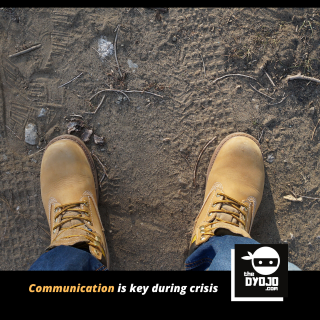 For most areas, even where stricter quarantine protocols are in place, construction is being considered as an “essential service”. Property restoration has typically been included in this designation as well. For those who are concerned about being excluded the Restoration Industry Association (RIA), Institute of Inspection Cleaning and Restoration Certification (IICRC) and National Air Duct Cleaners Association (NADCA) released a joint statement requesting Federal, State and Local Officials to consider our industries as essential businesses. Any contractor concerned about being included as “essential” should reach out to their local builders association and reference this joint statement. Crisis has a way of exposing the flaws in our existing processes. Organizations that were lax in their health and safety programs and continue to function with the mindset of “business as usual” will find themselves in peril. Many contractors and their employees are glad to continue working during this time as the economic impacts are a part of the overall picture of risk as we form responses to COVID-19. Many key voices in the industry have been rising to the occasion and doing their best to share sound information amongst peers. Some examples include:
Best practices for occupied worksitesWhile there are many unknowns with this novel coronavirus, in construction and property restoration the necessity of site health and safety is nothing new. From the AGC COVID-19 Job Site Practices, a few key additional precautions will help contractors to reduce the risk of exposure and potential spread of SARS-CoV-2. In addition to evaluating the specific hazards of each individual jobsite, some of these extra steps that should be practiced and documented when workers are entering occupied buildings and homes include:
Too often we take health and safety for grantedTo demonstrate that your company is committed to employee safety, a designated person in the company should be reviewing the ongoing release of information to update your organization's safety plan. Communication must increase during this time, and moving forward, rather than going radio silent and hoping it will all blow over. Hands on training should be performed and documented for everything which includes simple tasks such as washing hands, as well as pre, during and post work day cleaning protocols. Now is an important time to review your processes, which are often taken for granted, such as:
While many contractors are not engaging in COVID-19 clean up response, it is still important to understand what other service providers are learning about this issue. Whether you work for a restoration company that is considering coronavirus clean up or you are a GC that wants to keep you people safe, you will find value in the Three Tip Sheets provided by the Global Risk Advisory Council (GBAC), a division of ISSA.
Risk assessment and minimum measuresOn most construction sites, safety meetings are a daily occurence. One simple change during these unique times would be to have the supervisor sign everyone in rather than passing around a clipboard. Toolbox safety meetings should include discussion of and hands-on training for implementing the protocols mentioned above. Organizations will want to increase their documentation of communication, training and preventative measures, both to cover themselves from future scrutiny while also ensuring the information is reaching all team members. Worksite response should include partnering with the client to understand the potential for exposure. Asking questions such as, “Were there any persons, diagnosed or suspected, with COVID-19 who were at this site prior to our arrival?” A designated person should complete a pre-work evaluation of conditions and document these while creating a specific worksite plan which at minimum includes cleaning of touch points on a regular basis every day. The AGC recommends additional cleaning such as job site toilets to be disinfected by the provider at least twice a week, jobsite offices/trailers and break/lunchrooms to be cleaned at least twice per day. Now, more than ever, is a time for people in a position of leadership to step upLeaders need to lead. Crisis has a way of exposing the flaws in our systems. If you are resting on what you accomplished in the past or how you did things even a week ago, you aren’t leading and your company will struggle. With a little bit of thought, some clarity on expectations for this new world and a willingness to adapt as you all learn together, businesses can make some win-win scenarios that will keep talent as well as help them chart a path forward. Organizations should increase their level of communication with their team members during this time. Leaders should be on the front lines with their employees both to show them that we are all in this together as well as to have an ear open for strong ideas from the field that may come from sources that would otherwise be missed.
0 Comments
COVID-19 is exposing holes in leadership-think and business systems, it's time to adapt or die.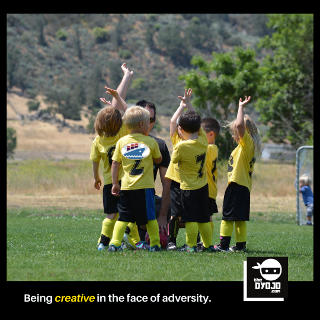 When I coached soccer for young kids, every season a unanimous point of contention was running. Ask any coach, if the kids are acting up, “Just make them run.” While conditioning is an essential component of the sport, it’s trite how often running is utilized as a disciplinary tool as well. On the other side of the ball, what do players complain about, “Why do we have to run so much?” I knew it was my role as a coach to teach these kids the fundamentals of soccer and to help them be competitive in our matches, but I understood quickly that if we could make the process enjoyable we would get much further in reaching our goals. Don’t get me wrong, I used to love it when kids whined about conditioning, I would ask, “If you don’t like to run, why did you pick soccer.” Some of them would reply, “I didn’t, my mom is making me play.” Touché. If we put ourselves in the young players mindset, they just spent the day at school sitting in a classroom getting lectured about things many of them are not interested in. They see an open field and their friends and they want to play. As coaches, we decided that we didn’t want to make running a constant punishment, we wanted the kids to enjoy the sport. Yet, we probably ran more than most teams in our league. How you phrase the conversation with affect you ability to implement changesAs we navigate the working world with COVID-19, I can’t help but see some parallels with the above scenario and the discussions around companies attempting to navigate their staff working remotely. I hear several employers contemplating aloud whether employees can be as productive working from home as they are working from the office. We will break some of this down, but one piece of the puzzle I would like to present to those in a position of leadership is how you phrase the conversation. In my coaching days, I discovered a very simple drill. The kids would gather into two lines with one coach in the middle. Coaches would throw a soccer ball as far as they could and the players would run to retrieve it and then scrimmage one-on-one the whole way back. The players literally sprinted to get the ball, they worked on footwork with opposition on the way back and everyone was gasping for air by the time our drill was done. Cardio, skills and scenarios in one simple drill. No one complained about having to run because the running was wrapped into an exercise that we were all doing together. We accomplished quite a bit by being creative. Working remotely is something every company should be experimenting with for the purpose of attracting young talent, providing options to retain existing talent and developing resiliency. Even prior to the novel coronavirus (SARS-CoV-2) outbreak, in the Pacific Northwest there have been many talks about a Cascadia earthquake event as well as other emergency scenarios which should have sparked remote work conversations. The world is changed and your only path to success is forwardThis pandemic is changing our lives and our economy. Life will not be the same once we flatten the curve and develop solutions to COVID-19. So many companies are making bad press for themselves with the public and with their employees through their haphazard actions. As a person in a position of leadership, you will never please everyone, but you must lead. This pandemic is exposing holes in systems worldwide that were not being tightened up because we were all prospering. Now that things are rapidly changing it is time to make adaptations that should have happened long ago. Communication is key. I am thankful that in Tacoma, Washington, the Chamber of Commerce and the Economic Business Development, among others, have been holding tri-weekly updates on facts and resources for local businesses. No one has all of the answers and we are putting this puzzle together one piece at a time. Setting up company updates about:
If you aren’t listening to your employees, you may be missing out on some key opportunities for collaboration and ideas that could save your business. Your concerns about remote work are with your systems not your people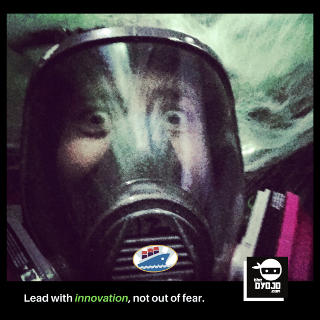 There are companies that already have significant portions of their workforce working remotely. I know of one technologically savvy company in the real estate space that provides parameters as well as freedom for their agents. This company has “peak hour” requirements where employees are required to keep a certain amount of their day/week open in those time frames when clients have the most need for service. A process like this demonstrates that the company has a firm grasp on what their clients needs and habits are as well as a means to align their workforce with that business stream. Even before coronavirus, as a person in a position of leadership, you should be asking whether your current process aligns your workforce with your client needs. A common objection to working from home is that employees won’t be as productive. Somehow, people in a position of leadership believe that employees sitting at a desk where they can be observed are somehow more productive. This is like sleeping with the light on when you are scared. It’s ridiculous. If there really is a threat, the presence of a 60 watt bulb will not stop a monster, nor does the “watchful eye” of a “trained manager” increase worker productivity. Setting your team up for success by creating a measurable processI am intentionally not including sources to support my position, if you feel strongly about working from home then you will find research that will support your position (confirmation bias) one way or the other. My contention would be that sitting at a desk is a piss poor metric for productivity. If you are that leader, my questions would be:
In my experience, the same people who judge productivity by butts in seats are the same companies that have no real systems for performance evaluation or improvement. Now is the time to get real about what a productive employee looks like in your organization. When I was coaching, it was the same thing there, coaches would brag about how often their kids ran because they were misbehaving. Many of them had terrible teams full of players who didn’t enjoy the sport and had no passion for learning. Too often as coaches or people in a position of leadership we blame the employee or the player. Soccer is supposed to be fun. It’s a hard game but it’s a blast if you can learn to improve a few key skills. Business as well is fun, it is a blast to land a contract, build relationships and see your team thrive. Now, more than ever, is a time for people in a position of leadership to step upLeaders need to lead. Crisis has a way of exposing the flaws in our systems. If you are resting on what you accomplished in the past or how you did things even a week ago, you aren’t leading and your company will die. Embrace innovation but understand it doesn’t have to be something crazy, going back to our simple “running” drill - it had a purpose, touched on key performance points and we all had fun doing it. Business can be this same way. With a little bit of thought, some clarity on expectations for this new world and a willingness to adapt as you all learn together, businesses can make some win-win scenarios that will keep talent as well as help them chart a path forward. What are you doing to create clarity, consistency and accountability in these key areas?
Leaders have to make tough decisions, what happens when leaders delegate to someone like Dwight Schrute?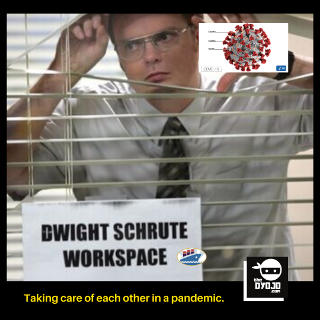 As we work together to create common sense responses to the COVID-19 situation, we can take a minute to laugh and learn from relevant situations that play out in the pop culture favorite TV series, The Office. In Health Care (Season 1, Episode 3), Michael Scott, defers his managerial responsibility to choose a health plan for the staff to his right hand man, Dwight Schrute. Dwight turns the opportunity into a power grab and cloisters himself in the conference room, posting a sign “Dwight Schrute Workspace.” Even though Michael is willing to delegate this important decision to Dwight, he will not allow him to call the conference room his office. We like our narratives to have good characters and bad characters as we seem to derive some false sense of comfort in labels. Dwight may be perceived as the bad guy, but at his core he does his best to do what he is asked. In this instance he is being asked to put the company first, cut costs and choose a plan. Jim on the other hand, deflects the opportunity to be of assistance. Dwight goes to the extreme. When his peers review the plan that Mr. Schrute has chosen they are upset, noting that he cut everything. Dwight is proud of his decisiveness, “What did I do? I did my job. I slashed benefits to the bone. I saved this company money. Was I too harsh? Maybe. I don’t believe in coddling people. In the wild, there is no health care. In the wild, health care is, ‘Ow, I hurt my leg. I can’t run. A lion eats me and I’m dead.’ Well, I’m not dead. I’m the lion. You’re dead.” - Dwight Schrute When leaders delegate the tough decisionsPeople in a position of leadership like to use phrases like, “Delegate and elevate,” but as is observed in this episode of The Office, sending your responsibilities downstream does not create a good working environment. To delegate does mean to appoint another as your representative. By this definition Michael Scott, the manager of the office, did act in accordance with the definition. Unfortunately, too often, when someone delegates it’s because they have an assignment they don’t want to complete, such as cutting insurance benefits, and comes with zero preparation. If you process of delegating is to pass the mantle so someone else takes the heat, you are setting everyone up for failure. Dwight D. Eisenhower, who served as a five-star general, commander of Allied Forces in Europe during WWII, and the 34th President of the United States, is credited with a simple system for prioritization. It has been referred to as The Eisenhower Method (see image below), Box or Decision Matrix, but the basic principle is the same. In this matrix any person in a position of leadership must decide how best to use their most limited resources, time management. Author and coach, Lex Sisney adds some value insights in his article When Not to Delegate. His axis includes the decision between level of conviction and degree of consequences. When a situation is of high conviction and low consequence it is a great opportunity for a leader to delegate for the purpose of developing others. Step up to the plate or don’t complain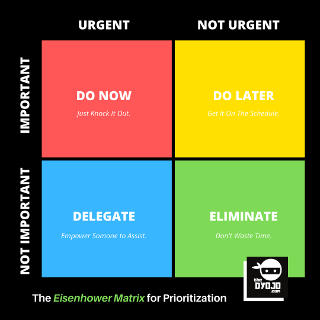 Jim Halpert is often viewed as the voice of reason, or that person in the office who has the potential to be a leader, yet in this instance he deflects the responsibility. Obviously, Michael is putting everyone in a bad spot, but it is better to have a seat at the table and a voice in important decisions than it is to allow the Dwight’s of the office to direct the conversation. Dwight becomes the villain and yet the origins of this debacle are handed down from a corporate office that needs to protect profits and their solution is to reduce benefits. The healthcare debacle starts when Michael’s boss, Jan, tells him at the opening of the episode, “You know the whole reason that we’re doing this, is to save money. So you just need to pick a provider and choose the cheapest plan.” Headquarters defers to executives who defer to managers and Michael defers to Dwight. Rather than fix the issue, the elites get the masses to fight among themselves. Jim complains about the result but he also stepped away from the opportunity to be a part of the solution. In our current situation with coronavirus (SARS-CoV-2), we face the toilet paper apocalypse of 2020 where citizens are fighting each other to hoard products. There is still time to work together, take care of each other and be a part of the solution process. This isn’t a TV show, it’s real lifeThe Office is fictional and yet so much of what makes comedy work is that there are elements of truth in the characters and the situations. If you watch the COVID-19 coverage or go to the grocery store, you can find Jans, Michaels, Dwights and Jims. Who are you going to be for yourself, your family and your community? What is the government doing to help citizens and businesses impacted by coronavirus?Remember, this is an unfolding situation and we should have some patience while everyone is working to understand and develop an effective response strategy. What have we seen with regards to any relief for the financial impact of coronavirus?
What can businesses do to help employees deal with COVID-19 burdens?With news that schools will be closing in our area as a response to coronavirus, I am thankful that our kids are old enough that they don’t need constant supervision. My heart goes out to those families that will be impacted by their young children unexpectedly having to be at home for an extended period of time. News is unfolding where local communities are helping those most vulnerable with food, childcare and other essential resources. If you are able, contribute to local efforts. If reducing interaction is a common sense approach to reducing exposure and slowing the spread of COVID-19, then working from home measures are one option to help this effort as well as develop business resiliency. Perhaps this situation will force many companies to experiment with remote work and in the long run, this may be a much better system for all involved. Working from home has many upsides. In the instance where an employee has young children who are now being forced to stay at home it may be a means of keeping business running while allowing team members to care for their families. What can we do to help each other navigate this pandemic?A pandemic means that the situation is global, the World Health Organization (WHO) has a chart which outlines the phase descriptions and actions during a pandemic. Their official statement from March 11, 2020, “Describing the situation as a pandemic does not change WHO’s assessment of the threat posed by this virus. It doesn’t change what WHO is doing, and it doesn’t change what countries should do.” For those who would question whether this is all being blown out of proportion, one thing to keep in mind is that we are in uncharted territory, “We have never before seen a pandemic sparked by a coronavirus. This is the first pandemic caused by a coronavirus.” The plan is evolving as everyone learns more about what we are dealing with.
Some awesome stories of generosity are emerging:
Most of the information we are receiving include common precautions that we should be doing regardless of this situation, but we are being made acutely aware of the need for measures such as:
Build a better culture by mastering the small things Have you had donuts at a company meeting? Were they crusty grocery store donuts or did they who brought the donuts put some effort into bringing a confection of quality? When you are in a position of leadership, culture is not something magical that you pull out of your bag of management tricks, it is you. Therefore, what you do matters. The quality of your donuts matters. You are your culture. If you bring your people together for an “important meeting” but are too cheap to bring in some snacks, your culture sucks. If you put some thought into your meetings but the quality of how you serve your people in that setting is less than the standards you claim that you serve your clients with, your culture is mediocre. Conversely, just because you bring the most expensive donuts to a meeting does not instantly mean you have a killer culture. I can recall one of my managers telling me, “Be careful about bringing donuts to the meeting, they will come to expect them.” My first thought was something along the lines of, “God forbid our employees came to expect ten dollars worth of dough every time we pulled them into a meeting.” My second thought was, “Who hurt you.” If you expect that your team will love you just because you bring donuts, you are disconnected with the working people.
“Great things are done by a series of small things brought together.” - Vincent Van Gogh |
AuthorThoughts on personal and professional development. Jon Isaacson, The Intentional Restorer, is a contractor, author, and host of The DYOJO Podcast. The goal of The DYOJO is to help growth-minded restoration professionals shorten their DANG learning curve for personal and professional development. You can watch The DYOJO Podcast on YouTube on Thursdays or listen on your favorite podcast platform.
Archives
March 2023
Categories
All
<script type="text/javascript" src="//downloads.mailchimp.com/js/signup-forms/popup/unique-methods/embed.js" data-dojo-config="usePlainJson: true, isDebug: false"></script><script type="text/javascript">window.dojoRequire(["mojo/signup-forms/Loader"], function(L) { L.start({"baseUrl":"mc.us5.list-manage.com","uuid":"b9016446bd3c6a9f0bd835d4e","lid":"83282ffb9e","uniqueMethods":true}) })</script>
|
Jon Isaacson |
Connect. Collaborate. Conquer.
© COPYRIGHT 2015. ALL RIGHTS RESERVED.
|

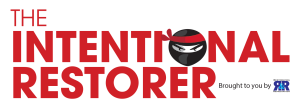



 RSS Feed
RSS Feed